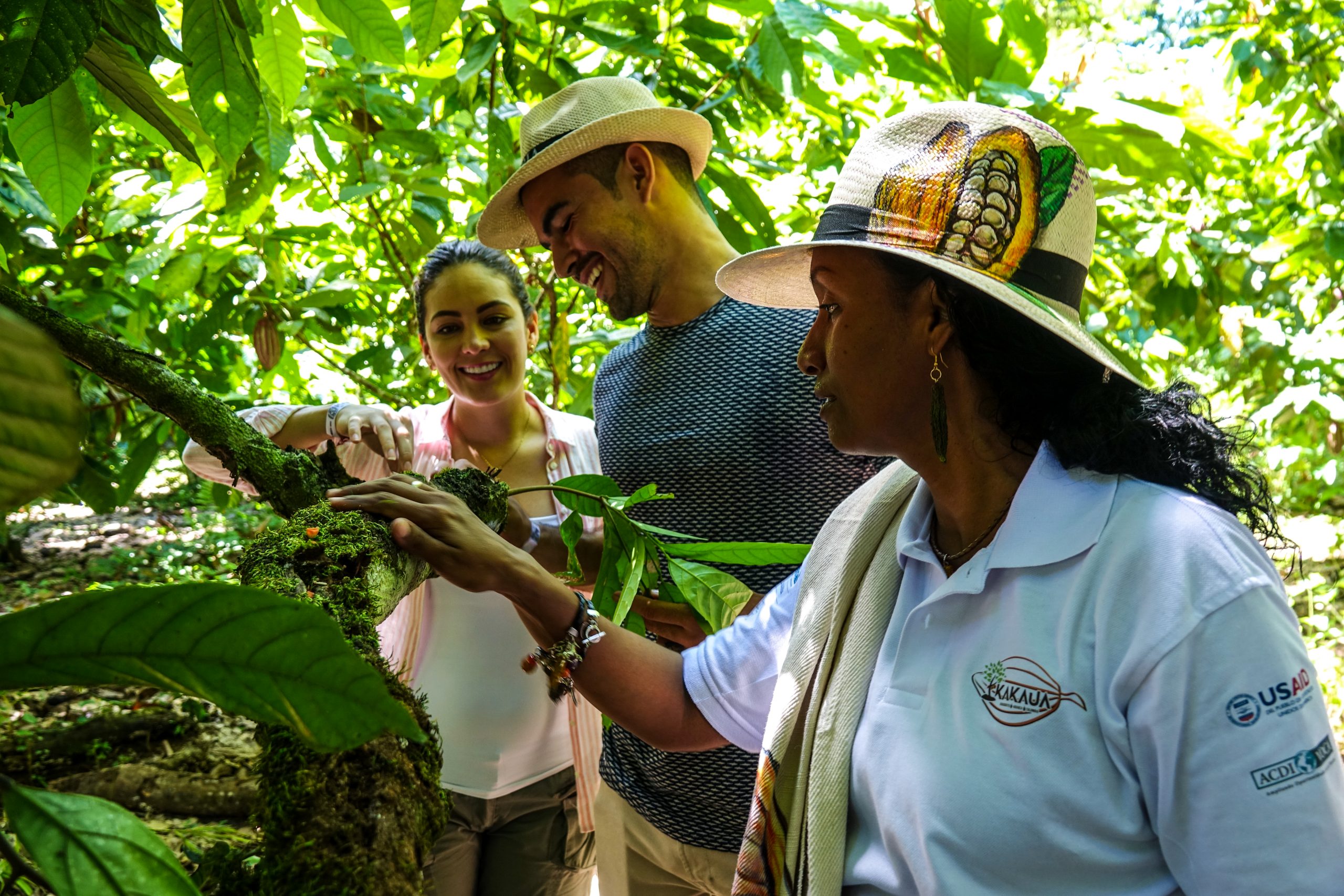
Tourism is a growing industry in Colombia, where the end of a decades-long armed conflict is opening up places previously considered too dangerous to travel. Tourism has jumped from around 600,000 international visitors in 2007 to more than 4 million a year, as tourists flock to experience the country’s rich biodiversity, culture, and history. Internal tourism has also grown, with the industry as a whole now generating approximately US$5 million a year and employing over half a million people.
In stigmatized regions of the country, where the USAID-funded and ACDI/VOCA-implemented Program of Alliances for Reconciliation (PAR) is working to create new narratives and generate income for marginalized people, PAR is also tapping into tourism as a tool to promote reconciliation.
Tourism projects led by PAR are helping to strengthen community-building initiatives. They are also reconstructing memories around people and areas affected by the conflict, as communities take back public spaces and give them new positive meanings. These projects are also creating vital economic opportunities for young people in areas with poor access to jobs.
PAR-Led Projects Attend Colombia’s Biggest Tourism Event
Three PAR-led projects recently took part in the biggest tourism event in Colombia – and, with over 3,500 exhibitors, one of the most important in Latin America. The annual trade fair, ANATO, brings together industry representatives from across Latin America and beyond to promote trade and tourism opportunities. PAR-supported initiatives from Caquetá, Arauca, and Ciénaga presenting at the trade fair built contacts with travel agencies and tourism companies and raised awareness about what their regions have to offer.
Promoting Nature Reserves in Caquetá
In Caquetá, rural tourism projects like Uruki el Manantial, which manages a nature reserve, are having a wider effect on generating income for the Amazonian region. Not only have flights to the department’s capital of Florencia increased from one to three a day, but also interest has grown in local food and crafts that were previously not known outside the community.
According to Fernando Hoyos, of Uruki el Manantial, Colombian tour operators wanted to know more about the typical foods, traditional accommodations, and spiritual experiences available. Five companies showed interest in Uruki el Manatial’s offerings, including a Spanish agency interest in promoting the 450 species of orchids native to the Colombian Amazon and a German agency interested in working with indigenous groups to promote cultural and ethnic tours.
“It was very important for us to be able to participate in this event because it gives us the opportunity to show what we have to offer to national and international companies. . . . All of this helps us generate more income and improve the standard of living for the community in the nature reserve.”
– Fernando Hoyos, Uruki el Manantial
Destigmatizing A Border Town Through Ecotourism
In the border town of Arauca, a PAR-supported project is helping reduce stigma by promoting the nature and agroecological tours available along the Arauca River, which separates Colombia and Venezuela. Through the project, participants formed a network called Turedco, which works alongside travel companies, the local government, and other public-private partners to support small businesses offering tourism in the emerging destination. These include a cacao farm, an adventure ecotourism ranch, birdwatching tours, arts and crafts collectives, and riverboat tours, where visitors can see river dolphins. During the three-day trade fair, Turedco engaged with roughly 300 contacts interested in the region.
New Tour Operators in Town Linked to Magical Realism
Also representing his region at the trade fair was Agustín Lara, a PAR Ambassador of Reconciliation who promotes tourism in the town of Ciénaga and the stilt-house community in the marshy Caribbean waters of Ciénaga Grande. Lara is committed to changing perceptions of the region, once the site of widespread conflict violence. He works with young people to encourage them to take pride in their hometown and act as changemakers to build a more unified Colombia. At the trade fair, Lara struck three new deals with operators interested in bringing tourists to the Caribbean region famed for its connection with writer Gabriel García Marquez. He also engaged with more than 130 contacts in the tourism industry.
Learn more about the Program of Alliances for Reconciliation.
Learn more about our work in Colombia.








